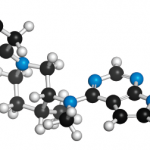AMSTERDAM—With new therapies coming into the marketplace, researchers are working to tease out the risk of infection for rheumatoid arthritis (RA) patients. Existing data suggest the risk of infections—even fatal ones—is real. But over time, improvements have taken hold, particularly for tuberculosis, according to an infectious disease expert at EULAR: the Annual European Congress of…





